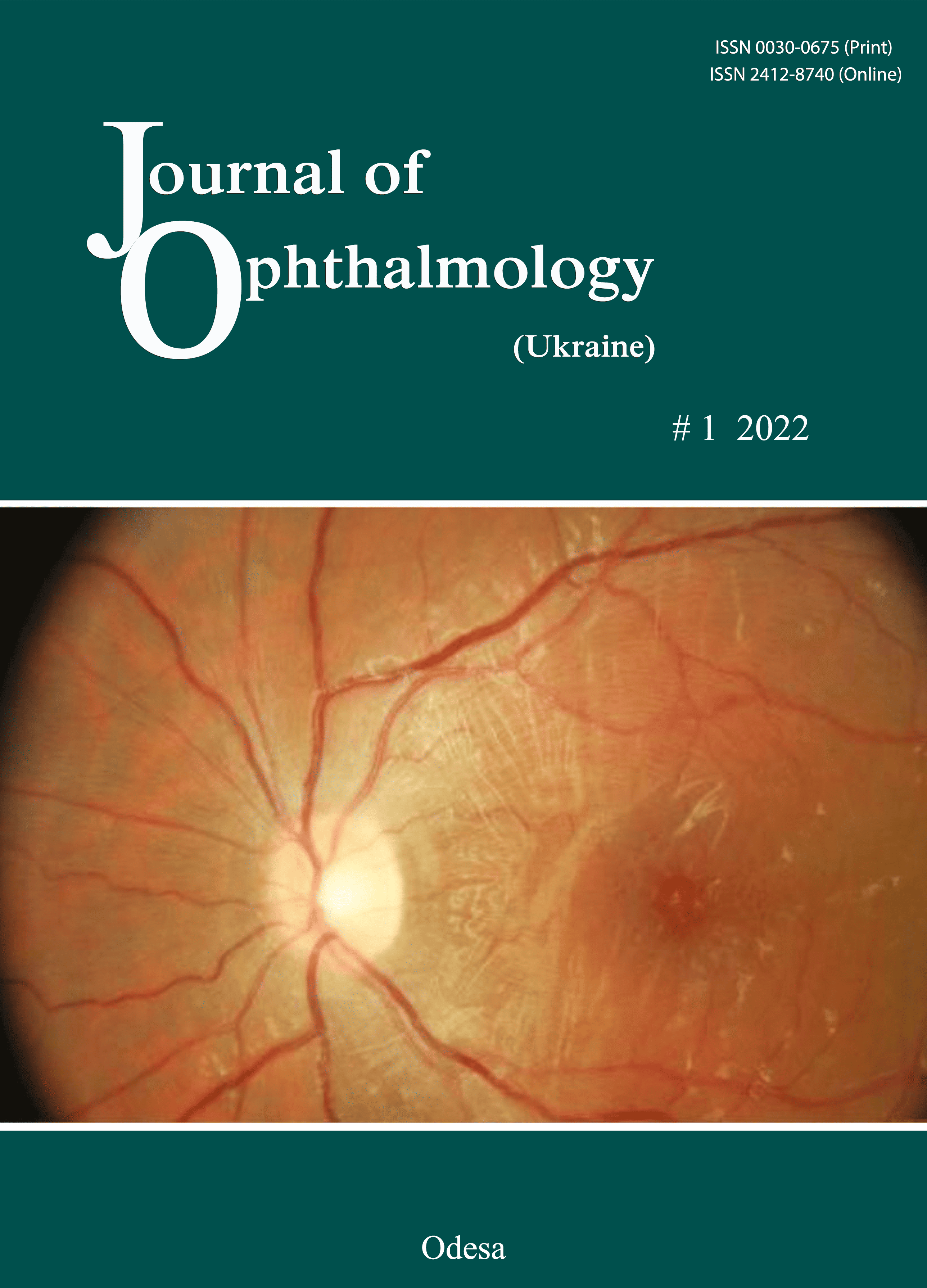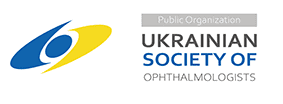Modifying, standardizing and adapting the Adverse Childhood Experience Questionnaire
DOI:
https://doi.org/10.31288/oftalmolzh202216372Keywords:
ACE, adverse childhood experience, questionnaire, standardization, modification, reliability, validityAbstract
Background: Medical and social workers and psychologists are increasingly faced with challenges relating to the management of the impact of adverse childhood experiences (ACE) on patient’s health and feeling of mental wellbeing. Consequently, it is important to develop psychodiagnostic instruments for detecting ACE and to adapt them to the social and cultural realities of the Ukrainian environment.
Purpose: To modify, standardize and adapt the Ukrainian version of the ACE Questionnaire.
Material and Methods: A sample of 230 respondents aged 18 to 70 years was included in this study. A modified version of the original ACE Questionnaire by Felitti, Anda and colleagues was used in the study.
Results: The original items were translated and modified, and the resultant questionnaire was validated. Cronbach's Alpha test was conducted to test internal reliability, and factor analysis, (a) to determine the number and structure of factors describing the covariance structure of the data and (b) to confirm the construct validity of the instrument. In addition, the instrument was standardized by calculating percentile ranks, Z-score normalizing and reporting the scores as stanines. As a result, an advanced Ukrainian version of the instrument was obtained, comprising three main subscales and the additional subscale with 22 items totally. Therefore, the adapted Ukrainian version of the ACE Questionnaire is characterized by high construct validity and reliability.
References
1. Rodina NV, Biron BV, Ukhanova AI, Semeniuk NS, Kernas AV. Developing the inter-role conflict scale for eye-care workers. J Ophthalmol (Ukraine). 2020;2(493):79-86. https://doi.org/10.31288/oftalmolzh202027986
2. Tsekhmister IV, Daniliuk IV, Rodina NV, Biron BV, Semeniuk NS. Developing a stress reaction inventory for eye care workers. J Ophthalmol (Ukraine). 2019;2(486):39-45. https://doi.org/10.31288/oftalmolzh201913945
3. Felitti VJ, Anda RF, Nordenberg D, Williamson DF, Spitz AM, Edwards V, et al. Relationship of childhood abuse and household dysfunction to many of the leading causes of death in adults: The Adverse Childhood Experiences (ACE) Study. Am J Prev Med. 1998; 14(4):245-58. https://doi.org/10.1016/S0749-3797(98)00017-8
4. Nakazawa DJ. [Childhood disrupted: How your biography becomes your biology, and how you can heal]. Moscow: Fors;2018. Russian.
5. Zarse EM, Neff MR, Yoder R, Hulvershorn L, Chambers JE, Chambers RA. The adverse childhood experiences questionnaire: Two decades of research on childhood trauma as a primary cause of adult mental illness, addiction, and medical diseases. Cogent Med. 2019 February;6:1581447. https://doi.org/10.1080/2331205X.2019.1581447
6. Felitti VJ, Anda RF. The relationship of adverse childhood experiences to adult health, well-being, social function and health care. In: Lanius R, Vermetten E, Pain C, editors. The impact of early life trauma on health and disease: the hidden epidemic. Cambridge: Cambridge University Press; 2010. pp. 77-87. https://doi.org/10.1017/CBO9780511777042.010
7. Felitti VJ, Anda RF. The Lifelong Effects of Adverse Childhood Experiences. In: Chadwick DL, Giardino AP, Alexander R, et al., editors. Chadwick's child maltreatment: sexual abuse and psychological maltreatment. Encyclopedic volume 2 of 3. 4th edn. Saint Louis, MO: STM Learning, Inc.; 2014. pp. 203-216.
8. Burlachuk LF. [Psychodiagnostics: Textbook for universities]. St peterburg: Piter; 2006. Russian.
9. Miliutina KL. [Empirical model of adult consequences of childhood experience]. In: [Maksimenko SD, Shevchenko NF, Tkalich MG, editors. Current psychology issues: Collection of science articles by authors from the National University of Zaporizhzhia and Kostiuk Institute of Psychology of the NAPS of Ukraine]. 2018;2(14):78-83. Ukrainian.
10. Vlasova OI, Podshivalkina VI, Rodina NV, Miliutina KL, Liovochkina AM. Features of social and psychological adjustment in visually impaired adolescents. J Ophthalmol (Ukraine). 2019;5(490):30-36. https://doi.org/10.31288/oftalmolzh201953036
11. Tselikova YuO. The importance of parental attitude in negative childhood experience. Socialization & Human Development: International Scientific Journal. Kyiv Taras Shevchenko National University, University of Szczecin (Poland), Ukrainian Association of Educational and Developmental Psychology (Ukraine): Szczecin, Kyiv. 2020;2(2);135-43.
12. Tselikova YuO. [Impact of negative childhood experience on the development of communicative tolerance]. Habitus;2020;2(18):125-9. Ukrainian. https://doi.org/10.32843/2663-5208.2020.18.2.23
13. Tselikova YuO. [Severity and types of adverse childhood experience among adult population of Ukraine]. In: [Maksimenko SD, Shevchenko NF, Tkalich MG, editors. Current psychology issues: Collection of science articles by authors from the National University of Zaporizhzhia and Kostiuk Institute of Psychology of the NAPS of Ukraine]. 2019;1(15):141-6. Ukrainian.
14. Vornikova LK. Studying the individual psychological characteristics of modern women in the climax period. In: Proceedings of the 4th Intarnational Conference on Current Issues and Prospects for the Development of Scientific Research. December 7-8, 2021; Orléans, France: Epi, 2021. https://doi.org/ 10.51582/interconf.7-8.12.2021.019.
15. Hughes K, Bellis MA, Hardcastle KA, Sethi D, Butchart A, Mikton C, et al. The effect of multiple adverse childhood experiences on health: a systematic review and meta-analysis. Lancet Public Health. 2017 Aug;2(8):e356-e366. https://doi.org/10.1016/S2468-2667(17)30118-4
Downloads
Published
How to Cite
Issue
Section
License
Copyright (c) 2025 О. І. Власова, Н. В. Родіна, Ю. О. Целікова, Л. К. Ворнікова, Ю. О. Тихоненко

This work is licensed under a Creative Commons Attribution 4.0 International License.
This work is licensed under a Creative Commons Attribution 4.0 International (CC BY 4.0) that allows users to read, download, copy, distribute, print, search, or link to the full texts of the articles, or use them for any other lawful purpose, without asking prior permission from the publisher or the author as long as they cite the source.
COPYRIGHT NOTICE
Authors who publish in this journal agree to the following terms:
- Authors hold copyright immediately after publication of their works and retain publishing rights without any restrictions.
- The copyright commencement date complies the publication date of the issue, where the article is included in.
DEPOSIT POLICY
- Authors are permitted and encouraged to post their work online (e.g., in institutional repositories or on their website) during the editorial process, as it can lead to productive exchanges, as well as earlier and greater citation of published work.
- Authors are able to enter into separate, additional contractual arrangements for the non-exclusive distribution of the journal's published version of the work with an acknowledgement of its initial publication in this journal.
- Post-print (post-refereeing manuscript version) and publisher's PDF-version self-archiving is allowed.
- Archiving the pre-print (pre-refereeing manuscript version) not allowed.












